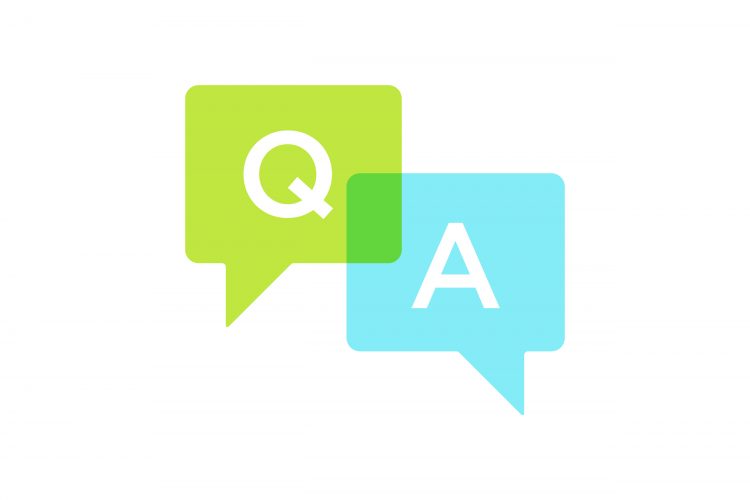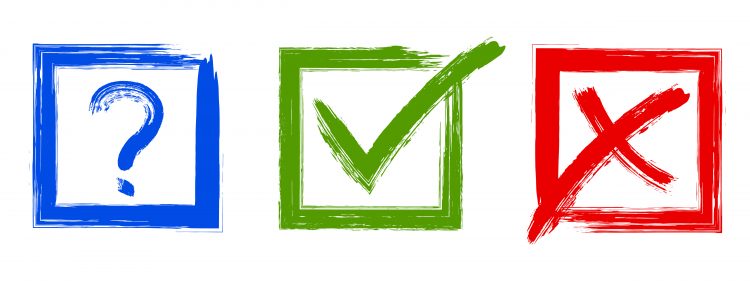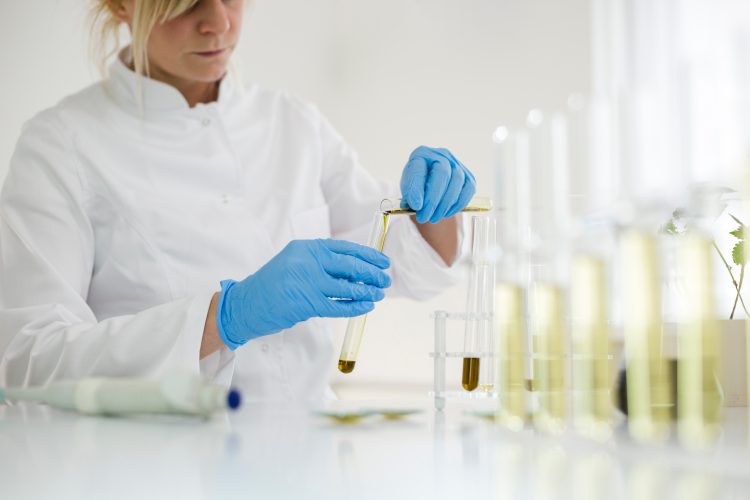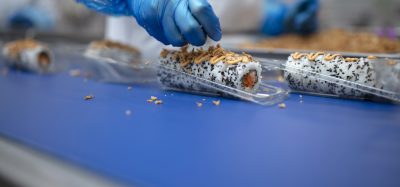The CBD authorisation process and decisions explained – in basic terms!
- Like
- Digg
- Del
- Tumblr
- VKontakte
- Buffer
- Love This
- Odnoklassniki
- Meneame
- Blogger
- Amazon
- Yahoo Mail
- Gmail
- AOL
- Newsvine
- HackerNews
- Evernote
- MySpace
- Mail.ru
- Viadeo
- Line
- Comments
- Yummly
- SMS
- Viber
- Telegram
- Subscribe
- Skype
- Facebook Messenger
- Kakao
- LiveJournal
- Yammer
- Edgar
- Fintel
- Mix
- Instapaper
- Copy Link
Posted: 13 May 2022 | Bethan Grylls (New Food) | No comments yet
Following on from the FSA’s update to its public CBD list which saw 1,700 new products added, New Food spoke to Paul Tossell of the FSA and Dr Paul Duffy of ACI to shed a little light on the decisions made so far and next steps.


On 31 March 2022, the Food Standards Agency (FSA) released a list of edible CBD products which have met the first set of criteria needed to achieve novel foods authorisation. It is worth noting that making this list does not mean that these brands have achieved authorisation and there is no guarantee that they will (you can read more here), it is simply the first hurdle.
That should have been the final list, but several weeks later and over 1,700 new products were added. Around 700 of those were said to be a result of clerical error which the FSA has since apologised for, but what about the others?
Further to this and despite best efforts, there still seems to be an air of confusion lingering over what is necessary for the application process and how one can make the public list. Do products need to be on the market pre-13 February 2020? Are literature reviews an acceptable form of evidence over toxicity data?
To help add clarify to the situation, New Food sought the expertise of Paul Tossell (PT), Head of Radiological, GM and Novel Foods Branch at the FSA and Paul Duffy (PD), ACI’s in-house toxicologist. Here’s what they had to say…
Q: We just saw another update to the list – why were these brands allowed to add further products to their applications at such late stage?
PT: The latest update covered omissions from and additions to the public list. Around 700 products were added to correct a clerical error. Applicants affected were contacted to let them know of the error and confirm their products would be added to the list. The publication of the list on 31 March 2022 hastened the submission of crucial evidence to the FSA. Therefore, the delay was due to companies not providing the evidence to show they matched the criteria for inclusion – evidence was only given after the list was published.
Over 1,700 new products added to the list relate to applications which had been submitted to the FSA prior to the 31 March deadline, but which required further evidence from businesses to ensure the products met the public list criteria before they could be added.
We share the desire from industry to get clear and consistent information into the public domain to help businesses and consumers make informed choices. Given the large amount of additional evidence we received at the last minute and after the list was issued, we aim to update the public list twice before 30 June. The first update was on 27 April. We took the view that it was better to issue a final call for evidence and give a timeline, rather than drip-feeding the updates and creating confusion about when the list would be finalised.
Q: Why were so many new products added?
PT : After our announcement on 31 March, we unexpectedly received evidence linking large numbers of individual products to applications. Therefore, we decided to offer all applicants a final deadline of 26 May 2022 to send us evidence that links their products to credible applications or evidence of toxicology studies they have commissioned. We will consider any evidence commissioned and update the public list with additional products if needed by 30 June. The only update made after this point will be to reflect the status of the products in our novel foods authorisation process.
Q: In order to make the CBD public list what did companies need to provide and by when?
PT: Admin checks come before validation checks. Where an applicant passed admin they were asked to provide evidence to show their products matched the criteria for inclusion. No specific deadline was previously set for submission of this evidence. This evidence has no bearing on the process of validation.
Evidence for proof of pre-existing status covered things like receipts or invoices for products that could specify the exact product and show a date before February 2020.


The public list contains CBD food products which meet the following criteria:
- They were on the market on 13 February 2020
- The FSA received an authorisation application for the products before 31 March 2021
- The FSA has validated the application or agreed that it is sufficiently progressing towards validation
Q: Will companies who joined tox study consortia to access the required data after 31 March 2021 be added to the public list?
PT: Companies can choose to join a current applicant with relevant toxicology studies to access the required data after 31 March 2021. We will consider the applications on a case-by-case basis to determine if additional products can then be added to the public list.
Q: How has the FSA verified that each product was on the market before 13 February 2020?
PT: The applicants were required to provide proof that the products were on the market before 13 February, eg, contracts, receipts. The validation process is separate to the public list. The further information for those applications classed as ‘awaiting evidence’ will continue for the forthcoming months, with the aim that all current active applications that have products on the list will be assessed for validation by the end of the year at the latest.
The sort of evidence of pre-existing sales status has been wide and varied. Where this evidence has raised concerns, we have requested further verification.
Q: Would you nullify the authorisation if, at any future time, evidence was produced to show certain SKUs could not have possibly been on the market pre-Feb 2020?
PT: Where information is provided that the evidence we have assessed has been deliberately misleading, we would take this matter very seriously and investigate. If upheld, products would be removed from the public list. The status of the public list does not alter the authorisation process. The authorisation decision will be based on the outcome of the safety case.
Q: If a member of the public is assured that a certain product appearing on the public list was not on the market before 13 February 2020 what should they do and what action will you take?
PT: We have only added products where relevant evidence has been provided. This evidence has to be date-bound. If anyone has proof that the evidence presented has been deliberately misleading, we would take that matter very seriously and investigate. Such proof should be provided to the FSA novel foods team.
Q: Did the FSA submit reminders to companies who had not submitted their applications by a certain date?
PT: We don’t have information on all companies who sell CBD so it would not be possible to send notifications to apply. Businesses are responsible for submitting their novel food applications to us. We announced in February 2020 that businesses should submit applications for their CBD products already on the market by 31 March 2021. We promoted the deadline through various channels, for example through news updates, meetings and correspondence with the industry, and attendance at CBD trade shows.
Once an application has been sent to us and is going through the novel foods process, there are various prompts to applicants for any missing information.
Where incomplete evidence was submitted we sought the missing evidence and in some cases this required multiple correspondence.
Q: What is toxicity data?
PD: The FSA requires assurance of safety (lack of toxicity) for foodstuffs classified as novel foods before authorisation is given.
It has adopted the published guidance of the EFSA in terms of what is required. As a minimum, the FSA require tests for genetic toxicity (changes or damage to DNA) and assessment of toxicity in an animal study (normally rodent). The assessment of toxicity in animals looks at, among other things, effects on blood and potential damage to key organs (including heart, liver, brain, kidney and many other). The output of this work is collectively often referred to as ‘tox data’.


Q: Can you accept literature reviews over tox data?
PT: To clarify, we cannot accept a literature review to evidence safety for CBD applications as the Committee on Toxicity (COT) has already said the available information is unlikely to be sufficient to prove a safety case for the levels proposed for foods. This has been included in our business guidance and communicated to industry.
Q: Why were literature reviews and peer reviewed publications not acceptable?
PT: The Committee on Toxicology (COT) looked at the existing evidence on the potential risk of CBD and there is a gap in the available toxicological information from literature, especially in the areas of reproduction and immunology. It reached the conclusion that even with the data on Epidiolex (medical CBD) in the data set it was not possible to identify a safe upper intake level of CBD. It was consequently agreed that the topic of toxicology would be reviewed once more data became available.
Therefore, a literature only approach cannot be accepted, unless significant further evidence, not considered by the COT, can be presented to support the dose at which CBD is safe, in relation to the CBD novel ingredient covered by an application. We have been open to applicants working collaboratively to generate and gather data, and some have done this by forming consortium applications or sharing the outputs from studies. However, our priority is to keep consumers safe and we need this data as evidence of safety of CBD as a novel ingredient
Q: But what about previously published positive options on novel food from the EFSA which recognised the safety of the various ingredients assessed, despite the lack of proprietary toxicity studies conducted on the novel food ingredient presented in the applications?
PT: The application process does allow safety cases to be proven without animal studies if there is pre-existing relevant data and justification can be given for how this data proves the new product’s safety. For CBD, the CoT has reviewed the available data from literature reviews and concluded it is unlikely to be sufficient to prove the safety case for lower levels found in foods.
Q: Why can’t companies rely on data already in the public domain and noted by the FSA?
PD: The EFSA guidance dictates that toxicity data is generated to suitable experimental design and standard – referred to as OECD methods. Much of the published data on CBD, whilst helpful in understanding data, does not meet OECD standards. The FSA see this as a gap in the quality of the information.
Where there is data of this standard available (some pharmaceutical products) it is proprietary and protected and not considered comparable to CBD food-based ingredients.
Q: Was toxicity data always needed for validation?
PT: The guidance does allow for the applicant to prove the safety case for a novel food with or without having to undertake toxicological studies. For the reasons given above, more data is needed for CBD foods than is available in the literature. Validation requires the provision of sufficient information to allow an application to pass to the risk assessment stage. So for CBD without toxicological studies for the specific products this would not be the case.
Q: Where can companies ascertain tox data? How does it all work?
PD: Big companies with in-house facility can generate this data but these are usually big pharma. Most food-based companies use contract research organisations (CROs) to generate the data on a fee for service basis. It is expensive and many companies seem to have chosen not to do it thinking public information/literature reviews would be ok. The FSA has repeatedly stated that public information/literature reviews alone would not be acceptable.
Q: Has the FSA ever validated any novel food applications in which the safety part of the dossier was based on a literature review?
PT: The FSA and Food Standards Scotland (FSS) have been running the novel food authorisation process since January 2021. We are not aware of any non-CBD applications in the GB system that have been validated having only provided literature reviews. Literature reviews are a part of the evidence pack for risks assessments.
Q: What happens next in terms of authorisation, do companies need to do anything and how long will it take?
PT: Those applications marked as ‘awaiting evidence’ will need to supply us with outstanding evidence to become validated. Validated applications will move onto the safety assessment stage. This usually takes between six and nine months, but may take longer if further information or clarifications are required (the clock stops awaiting replies of the applicants to such questions). We don’t expect authorisations to start happening until at least 2023.
Q: What about new CBD companies coming into the market (those which have only just launched and were not trading pre Feb 2020) – what do they need to do in order to achieve authorisation?
PT: New CBD companies can apply for novel food authorisation through our regulated products service. However, they should not put any products on the market until they are authorised.
Biographies




Related topics
Related organisations
Association for the Cannabinoid Industry (ACI), Food Standards Agency (FSA)









